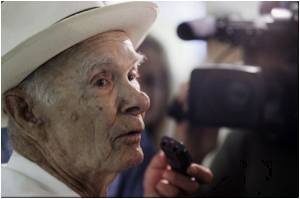
"As the population ages, there's a great interest in discovering how to regenerate the inner ear sensory cells that we need for our hearing and balance," said Olivia Bermingham- McDonogh of the University of Washington.
"Both of these falter as we get older-we get hard of hearing and unsteady on our feet-due to accumulated destruction of the sensory cells in the inner ear," she added.
The goal of their research is to develop ways to restore inner ear sensory hair cells in people who have lost them due to age, excessive noise or other toxic damage.
In order to devise a way to restart hair cell formation in the adult ear, Bermingham-McDonogh's group studied how hair cells are made in the first place during ear development.
They could encourage the formation of new building foundations throughout the inner ear. Once these new sensory patches were made, new hair cells and support cells were properly produced within them.
Advertisement
The team is now studying ways of manipulating the Notch pathway in the adult inner ear to see if this will stimulate hair cell regeneration in the hearing and balance organs.
Advertisement
The findings are reported this week in the early online edition of Proceedings of the National Academy of Sciences.
Source-ANI








